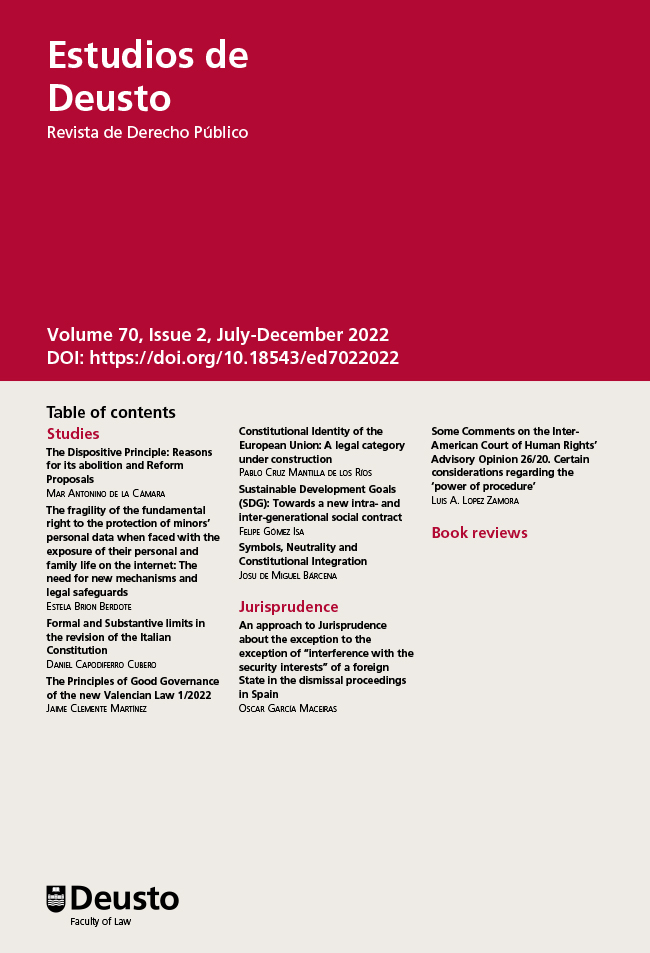Some Comments on the Inter-American Court of Human Rights’ Advisory Opinion 26/20. Certain Considerations regarding the ‘power of procedure’
Abstract
This paper provides an analysis of the Inter-American Court of Human Rights (IACtHR) Advisory Opinion OC-26/20 (AO 26). It analyzes that decision and, in broader terms, the advisory powers of the IACtHR, which have been enhanced over the years by the Court itself. The Court has made its advisory opinions binding in practice by including them in the conventionality control doctrine and by declaring them obligatory for the Inter-American Commission of Human Rights. The AO 26 is particularly important in that regard, because it shows how those decisions can affect the overall Inter-American System’s architecture. The main argument is that –on occasion–, procedural mechanisms –like an advisory opinion– are used to achieve purposes that cannot be attained using other means. This is mainly due, to the way advisory opinions are requested in the Inter-American System of Human Rights and the law that can be interpreted through them.
Received: 04.10.2022
Accepted: 05.11.2022
Downloads
Last update: 08/02/2022
The authors, by submitting their manuscripts to the Estudios Deusto. Revista de Derecho Público, accept the conditions listed below on copyright and undertake to comply with them.
- Authorship: The author must be the sole creator of the work or legally acting on behalf of and with the full agreement of all the authors.
- Copyright, liability and Ethical Guidelines:
- Authors warrant that their manuscript is original; has not been previously copyrighted or published in any form; is not under consideration for publication elsewhere; its submission and publication do not violate the Ethical Guidelines of Estudios Deusto. Revista de Derecho Público and any codes (of conduct), laws or any rights of any third party; and no publication payment by the Publisher (University of Deusto) is required.
- Authors grant to the Publisher the worldwide, sub-licensable, and royalty-free right to exploit the manuscript in all forms and media of expression, now known or developed in the future, for educational and scholarly purposes.
- Authors retain the right to present, display, distribute, develop, and republish their manuscript to progress their scientific career provided the original publication source (Estudios Deusto. Revista de Derecho Público) is properly acknowledged and in a way that does not suggest the Publisher endorses them or their use of the work.
- Authors warrant that no permissions or licences of any kind have been granted or will be granted that might infringe the rights granted to the Publisher.
- Authors are solely liable for the consequences that may arise from third parties’ complaints about the submitted manuscript and its publication in Estudios de Deusto. Revista de Derecho Público.
- Users: Estudios de Deusto. Revista de Derecho Público is an Open Access publication. Its content is free for full and immediate access, reading, search, download, distribution and reuse in any medium or format only for non-commercial purposes and in compliance with any applicable copyright legislation, without prior permission from the Publisher or the author(s). In any case, proper acknowledgement of the original publication source must be made and any changes to the original work must be indicated clearly and in a manner that does not suggest the author’s and or Publisher’s endorsement whatsoever. Any other use of its content in any medium or format, now known or developed in the future, requires prior written permission of the copyright holder.


.jpg)
.jpg)
4.jpg)
4.jpg)
4.jpg)
.jpg)







